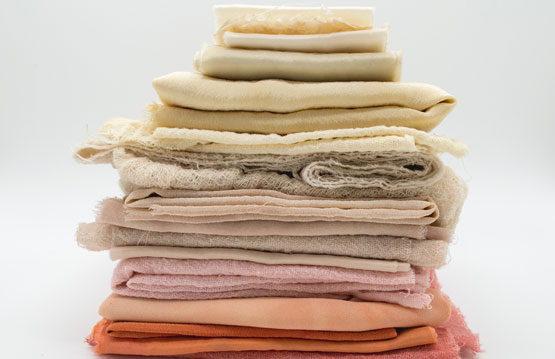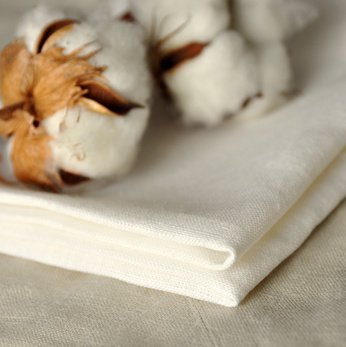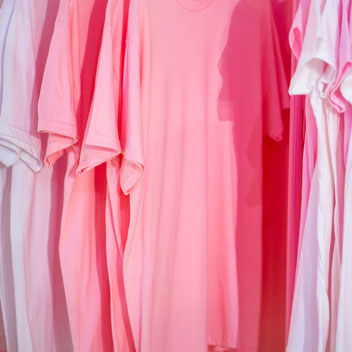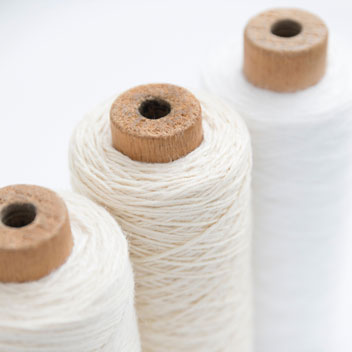ORGANIC BABY CLOTHING
is it really safer + more sustainable?
TLDR: Organic clothes are sometimes better for the planet. But not for your baby.
When I was pregnant with my daughter, the world felt like a land mine that could explode at any moment. The food I ate, the kind of mattress I slept on....it all seemed like it had to be the purest, best quality or else I might ruin my child's life.
Buying organic clothes for her just seemed like a total no brainer. Who would want to put all of those terrible pesticides on their baby's sensitive skin? And besides...organic is just better for the environment, right? RIGHT???
Let's think about that for a minute. What does organic really mean?


Organic farming means that plants are grown using methods and materials that have a low impact on the environment. Organic production systems replenish and maintain soil fertility, reduce the use of toxic and persistent pesticides and fertilizers, and build biologically diverse agriculture. Third-party certification organizations like verify that organic producers use only methods and materials allowed in organic production.
What about inorganic cotton?
Conventionally grown cotton is the most chemically treated crop ON EARTH, requiring ever stronger pesticides like glyphosate (aka Roundup) to grow. And it is a "thirsty" crop, meaning it requires more irrigation than most. More water = more chemicals going into our soil and waterways.
IS ORGANIC SAFER FOR BABIES
It seems clear that inorganic cotton is terrible for the earth, our waterways, and the people who grow it. But what do those chemicals mean for us and our babies? Do those chemicals make it into our clothes, and how do they affect us?

What does the research say?
Well, nothing actually. There have been no conclusive studies about the effects of inorganic cotton on our bodies. Much of the chemicals used in the production of cotton is washed away in the process, leaving trace amounts of chemicals which are likely diminished in your own washing machine (assuming you're not using fragrance-heavy detergents and softeners.) But we are moms, so we are extraordinarily susceptible to messaging about what may or may not be harmful to our children.
There is, of course, anecdotal evidence from people with chemical sensitivities that they feel better when they wear organic cotton exclusively, but science has yet to identify the reason for this.
Is organic really better for the planet?
If cotton is grown organically in the right place, and by farmers who are truly committed to sustainability, then yes...there is no question that organic is better for the planet.
HOWEVER...
The global demand for organic cotton has led to some unsustainable practices.
For example, cotton is infamously "thirsty" meaning it requires a significant amount of water to grow, and organic cotton requires TWICE the water as conventionally grown cotton.
And considering the top organic cotton-producing region is India, a nation that struggles with water scarcity, the global demand for organic cotton may be doing more harm than good.
The Xinjiang Problem
Around 2019 it was discovered that Xinjiang, the Chinese province where one sixth of the world's organic cotton is grown, has been engaging in forced labor of the Muslim Uyghur minority. Since then clothing manufacturers worldwide have struggled to ensure that their organic cotton was not grown by enslaved people, but at the moment it is nearly impossible to verify.

SO WHAT NOW--WE JUST DON'T WEAR COTTON?
Every parent has to decide for themselves what is best for their family, their budget, and their ethics. But one way you can never, ever go wrong is to buy your clothes secondhand. Make sure you look for natural fibers like cotton, linen, and wool, that are well-constructed and made to last. Secondhand clothing, even if inorganic, is not likely to transfer chemicals onto your baby's body and has the lowest carbon footprint of all!
In review...

The Good
Organic cotton does have benefits. There are the intangible ones, like less chemicals circulating in our soil. air and waterways. And the quantifiable ones, like the fact that organic cotton is actually stronger than inorganic. Without the harsh chemicals the cotton fibers retain their strength and antimicrobial characteristics, making them more durable and longer-lasting.

The Bad
Organic cotton takes a LOT of water to grow, is produced in regions that are already experiencing a water shortage, and has a big ol' carbon footprint getting from there, to wherever your clothes are sewn, to you.

The Ugly
At the moment, it's very difficult to know whether organic clothing contains cotton grown by enslaved people. Some legislation has been passed, but ultimately no brand can promise that their clothing contains zero unethically grown cotton.
The best we can do is to look for 3rd party organic certifications like GOTS, which has a zero-tolerance policy for forced labor practices.
So many parents ask me whether Beya Made clothes are made from organic and non-toxic materials. The truth is that Beya Made is a zero waste business, and as such we prioritize using upcycled fabrics that we purchase from other manufacturers' waste yardage. A pre-existing fabric is ALWAYS more sustainable than one that has been made to order, even if it isn't organic.
So while we do use organic at times, our first choice will always be to rescue and repurpose textiles that otherwise would go into a landfill.
Thanks so much for reading!
Yours,
Laurel
founder, Beya Made

Was this article helpful?
You might enjoy these too:

